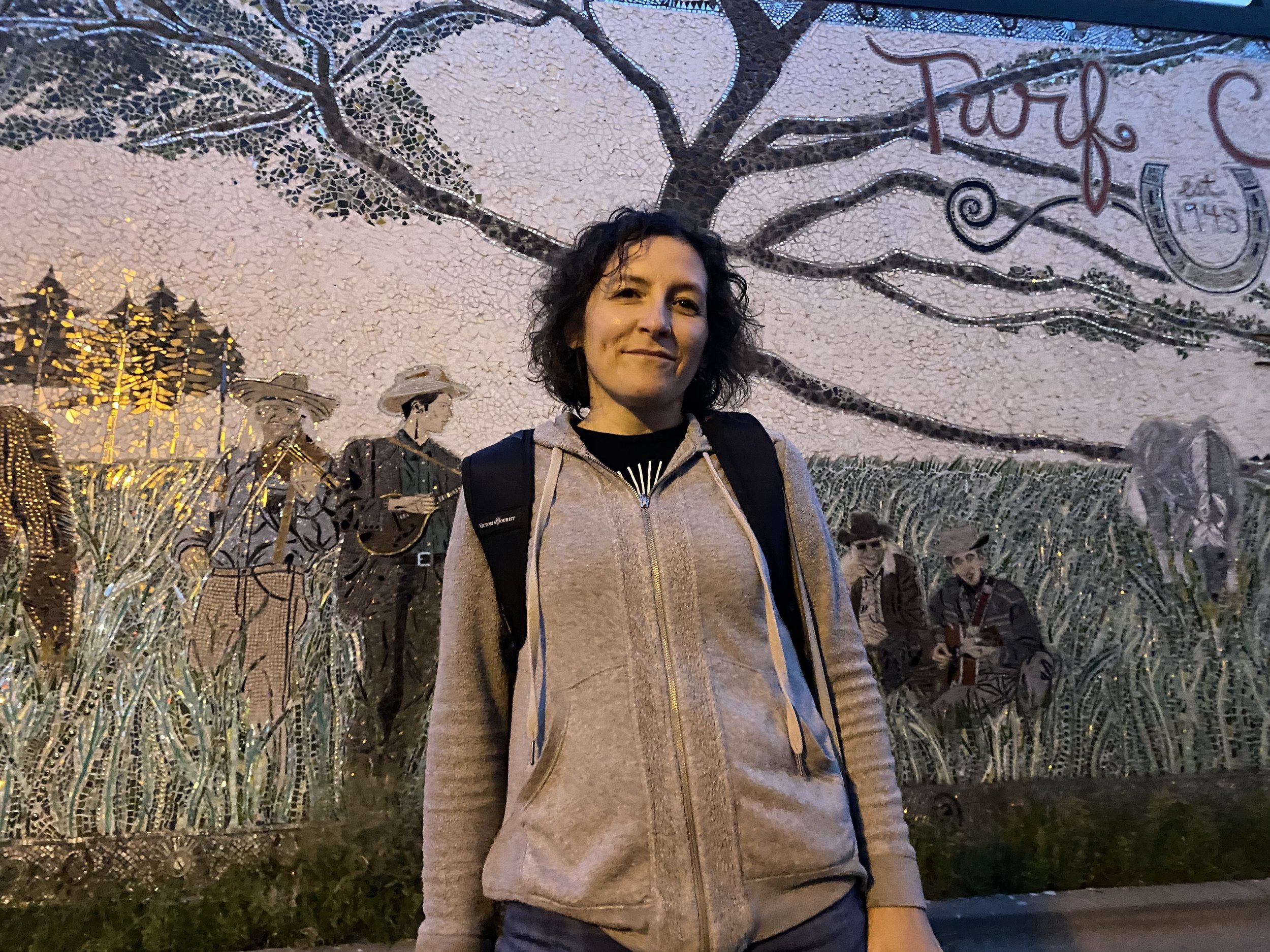Music Review: The Roe Family Singers, ‘Sisters & Brothers’
The Minnesota string band draws on their punk ethos and the activist history of old-time music to produce a stirring collection of predominantly protest songs.
The Roe Family Singers’ Sisters & Brothers album artwork.
I love old-time music. Like many people, probably, for me it evokes feelings of comfort and happiness. It feels wholesome and fun and often cute. Maybe because it’s often played without percussion (except foot stomping, clogging or the occasional washboard) or bass (unless it’s an upright), it also tends to feel lighter than most music.
Something I’ve noticed as I’ve learned about and talked to current artists who do old-time country, folk or bluegrass is that many of them have punk rock backgrounds. At first that surprised me, but it makes complete sense. Although one sounds (on the surface) light and old-fashioned and the other hard and angry, both genres share a raw realness and anti-authoritarian outlook.
Quillan Roe of the Roe Family Singers is one of those artists who started out punk rock. But early in his career he was already trying to marry punk with acoustic instruments via his band Accident Clearinghouse and, with his wife Kim, he went all the way into old-time with the Roe Family Singers, who’ve been active for over 15 years.
But he never forgot his punk roots; they often play The Misfits’ “Skulls” at their longstanding every-Monday residency at the 331 Club in Minneapolis. And in their newest album, which came out in February, the Roes used folk-punk band The Pogues’ If I Should Fall from Grace with God as an inspiration and “template” for blending traditions and musical styles and making sociopolitical statements. On Sisters & Brothers, The Roe Family Singers apply punk rock intensity to their old-time sound and lean into roots music’s long history of decrying injustice and documenting the struggles, losses and triumphs of the oppressed, be they blue-collar workers, women or people of color.
Listening to Sisters & Brothers for the first time got me really thinking about the socially conscious underpinnings of old-time music. The struggles of working men and oppressed women and minorities are right there in the songs, even if that’s not the first thing that occurs to me when I think old-time music. I dug into this topic and found some old songs that say some pretty amazing things about racial injustice (Lead Belly’s “The Bourgeois Blues”), environmental issues (Jean Ritchie’s “Black Waters”), workers’ rights (Hazel Dickens’ “The Mannington Mine Disaster”), poor folk struggles (Dock Boggs’ “Country Blues”) and more. I gathered a handful onto a playlist if you want to check it out. (I included a newer one by Amythyst Kiah and Our Native Daughters because it was too good not to!)
Kim & Quillan of The Roe Family Singers. Photo courtesy of the artists.
With Sisters & Brothers, The Roe Family Singers have made a contribution to the long history of old-time and folk music’s protest-song roots that they should be extremely proud of. It’s not all message songs—there’s the straight-up instrumental stomper “Planxty Oldtime,” a reminiscence about youthful adventures on “Chicago / Art School,” the melancholy but breezy crooner about lost love “Weep, Sweet Willow,” and the musical-saw-inflected bop “Bedtime in Boogietown,” which features exciting solos by the bandmembers and a swingin’ call-and-response section. “What Are You Waiting For” references the many world problems that can keep us awake, but does so in a playful, tongue-in-cheek waltz (global warming, war and zombies are given equal weight as insomnia-causing worries).
But to me, this is a statement album—and the Roes have a lot to say. They do it in a range of ways, from fast to slow, smartass to sincere. “Road to Hell” decries capitalism with lively, shitkicking exuberance. “On the TV Today” is a sober, wrenching lament about the murder of George Floyd here in Minneapolis and its permanent impact on both our city and his loved ones.
They bring the energy back up with the rollicking feminist anthem “Loretta Lynn Blues,” then go straight into the nearly a capella dirge “That September Day,” which mourns the devastation of 9/11, not only on the day but during the seemingly endless war in Afghanistan, from the point of view of a deployed soldier. “Too Big to Fail” brings Vaudeville charm to another anti-capitalist satire.
The album closes with a rousing call for peace and activism in the blazing fast “World Without a Gun,” which celebrates Jesus, Rosa Parks and Martin Luther King Jr. for changing the world without the use of violence. Like the whole of Sisters & Brothers, it’s a feisty reminder that as bad as things get, we can keep fighting with hope and love, resisting with words and actions, and using whatever gifts we have (like the Roes’ considerable musical skills) to try and make the world a little better.
Like what you hear and want to see it live? You can catch the Roe Family Singers nearly every Monday at 8 p.m. at the 331 Club in Minneapolis.
ABOUT THE AUTHOR
Carol Roth is the primary writer, social media manager, podcast producer and event-calendar updater for Adventures in Americana. By day she’s a marketing writer/brand strategist. In addition to playing guitar and songwriting, she writes self-proclaimed “trashy” novels under the pseudonym T.A. Berkeley.


